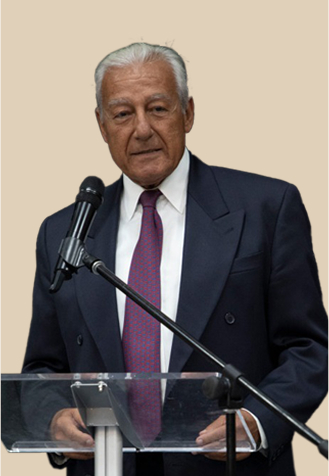Defying Common Sense, DHS’s Decision on Syria TPS
With bated breath, nearly 7,000 Syrians in the U.S. waited to hear the Department of Homeland Security’s (DHS) decision on Syria’s Temporary Protected Status (TPS) on January 31. TPS allows individuals in countries ravaged by natural or manmade disasters a form of temporary asylum in the U.S. with all the legal rights of standard immigration except permanent status.
The Trump Administration has reversed decades of bipartisan action by revoking the TPS designation and extension for Sudan, which affected 1,050 TPS beneficiaries in the U.S.; Nicaragua (5,300 people); followed by Haiti (59,000 people); and, finally, 200,000 El Salvadorians lost TPS last month.
The unparalleled revocation of TPS against expert advice (for instance, Haiti continues to suffer from food insecurity and widespread illness while gang violence in El Salvador remains rife) exemplifies the hardline anti-immigration policies of Pres. Trump and his nativist advisors. This reactionary nationalism is especially hostile toward Arabs and Muslims. It’s against this backdrop that the decision on Syria TPS was made.
It was never likely that DHS would revoke TPS for Syrians already in the U.S. It’s one thing to argue that conditions have improved in Haiti since the 2010 earthquake, but it’s another thing to argue that Syria’s safe enough for repatriation amidst ongoing civil war. Instead, DHS came up with a solution that defied common sense: Extending TPS for Syrians but removing Syria as a designated country. The line between extension and designation is very fine. Syrians already admitted on TPS will be allowed to stay in the U.S. at least for the next 18 months (when DHS will revisit the matter), but since Syria is no longer a designated country DHS is ending Syrian applications for TPS. Non-TPS Syrians here in the U.S. with nowhere to go will not be allowed to apply for TPS. The disparate decision on extension and designation, frankly, makes no sense.
U.S. troops are currently stationed in Syria. Turkey recently invaded the northern part of the country. The Syrian regime continues to battle rebel forces. Russia and Iran remain involved in the conflict. The U.S. State Department’s Travel Warning Advisory on Syria as of January 2018 reads, “No part of Syria is safe from violence. Kidnappings, the use of chemical warfare, shelling, and aerial bombardment have significantly raised the risk or death or serious injury.” If DHS thinks it’s too dangerous to send Syrians back, why is it acceptable to turn away Syrians trying to flee the same danger to their lives? If it’s too dangerous to return, it’s too dangerous to stay.
Nothing can account for DHS’s two minds on the matter other than politicized expediency in the service of an anti-immigrant president. By refusing to admit Syrians even for temporary sanctuary, DHS has capitulated to Trump’s Arab and Muslim Ban. The extension of TPS was a welcome decision, but the baldy contradictory decision to cap Syrian TPS is unfathomable. Moreover, the latter decision will make it difficult if not impossible to reunite families.
DHS should adopt a rule of thumb: if American troops are at war in a country then civilians from that country who are in the U.S. should be eligible for TPS. As that is the case in Syria, DHS needs to immediately re-designate the country for TPS.
Recent Posts
Action Alerts

Your support means everything. Your gift protects rights, builds community, and fights hate. Let’s move forward together.
